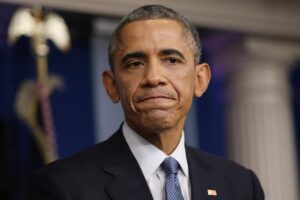Obama bats for higher minimum wage
President Barack Obama has expressed concern over the need of raising minimum wage in the U.S. “If we want to keep fighting to raise the minimum wage, I need supporters like you, who won’t quit, standing by my side and making your voice heard,” the president said in his state-of-the-union address on January 20.
With jobless rate falling, a smaller deficit and cheaper fuel, he said the country has “risen from recession freer to write our own future than any other nations on Earth”. However, the fact remains: U.S ranks 13th in the world with the current federal minimum wage standing at $7.25 per hour. A full-time minimum wage employee earns $15,080 annually. Australia is the top-paying nation in the world as far as the minimum wage is concerned.
An individual working full time at minimum wage in U.S. can make enough to live above the poverty line. However, if he or she is the sole earner for a family of four, that income is only 65 percent of the federal poverty guideline.
An employee with The Q Restaurant in Boston, who requested not to be named, told Global Times: “Low-wage workers know they have to enhance their skills to escape low-wage jobs, but long hours and multiple jobs make skill-building and education nearly impossible. Federal government must find out ways to raise the minimum wage”
According to Bureau of Labor statistics, in 2013, 75.9 million workers (or 59% of all wage and salary workers) from age 16 and over were paid hourly wages. Among those 1.5 million workers earned exactly the prevailing federal minimum wage of $7.25 per hour. Another 1.8 million had wages below the federal minimum. Together these workers make up 4% of all hourly paid workers.
Suparno Chaudhuri, a digital marketing strategist based in NYC area, who has working and consulting experience with large organizations to SMBs, told Global Times: “The necessity of a government-set minimum wage may be debatable, but it’s a fact that it prevents many employers from paying their employees immorally. Many employers take advantage of the present loopholes in the system, which needs to be stopped.”
The Congressional Budget Office (CBO) estimated in 2014 that raising the minimum wage to $10.10 and indexing it to inflation would increase the wages of 16.5 million workers in 2016, while raising it to $9 without indexing would affect 7.6 million.
The precariousness of low-wage employment limits these workers’ time to search for better jobs, learn new skills, take classes or obtain credentials. Low-wage workers put considerable effort into maximizing paid hours with multiple jobs, additional one-time jobs, working overtime without overtime compensation, guarding their reputations and continually scanning for opportunities within their networks.
Melissa Chu, a daily age earner at a private farm in West Caldwell, NJ, said to Global Times: “Policy makers should focus on improving the conditions of low-wage work rather than expecting workers to move out of this labor market on their own.”
She added: “A minimum wage not only guarantees bare subsistence and preserves efficiency, but also provides for education, medical requirements and some level of comfort. Payment of wages below the minimum wage rate amounts to forced labor.”
Well, Washington DC and 22 states, including California, have raised their minimum wages above the federal minimum.
The article was published in Global Times (US Edition)
=====
In India, it varies from appalling Rs 118 (less than $2) per day in Bihar to Rs 1000 a day in Kerala ($16) (with local cost of living allowance included). State governments set a separate minimum wage for agricultural workers.
The minimum wages are set according to Minimum Wages Act, 1948
On 18 January, 2011, members of the National Advisory Council (NAC), labour activists, lawyers and Left politicians slammed the UPA for decoupling the pay for the rural job scheme from minimum wages, leaving Montek Singh Ahluwalia as the lone defender of the government at a gathering.
The trigger for the barrage of criticism was Prime Minister Manmohan Singh’s reaffirmation of a notification of the rural development ministry that froze at Rs 100 ($1.6) the daily wages under the Mahatma Gandhi National Rural Employment Guarantee Act (MNREGA).
Sonia Gandhi, who headed the NAC, had written to the Prime Minister to consider linking the rural job scheme to minimum wages, which are higher than Rs 100 in many states. Many believe that the blockbuster welfare project played a key role in the return of the UPA to power.

